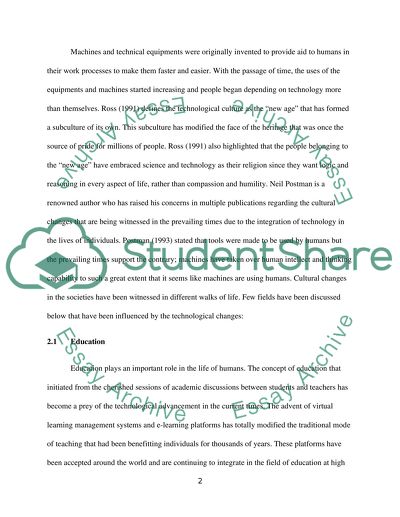Cite this document
(“Technology and Cultural Change Essay Example | Topics and Well Written Essays - 2500 words”, n.d.)
Retrieved from https://studentshare.org/journalism-communication/1430102-discuss-theekrelationshipekbetween-technological
Retrieved from https://studentshare.org/journalism-communication/1430102-discuss-theekrelationshipekbetween-technological
(Technology and Cultural Change Essay Example | Topics and Well Written Essays - 2500 Words)
https://studentshare.org/journalism-communication/1430102-discuss-theekrelationshipekbetween-technological.
https://studentshare.org/journalism-communication/1430102-discuss-theekrelationshipekbetween-technological.
“Technology and Cultural Change Essay Example | Topics and Well Written Essays - 2500 Words”, n.d. https://studentshare.org/journalism-communication/1430102-discuss-theekrelationshipekbetween-technological.


